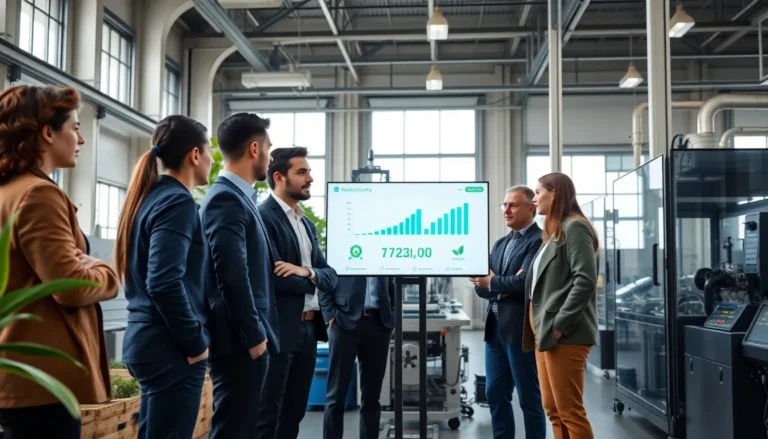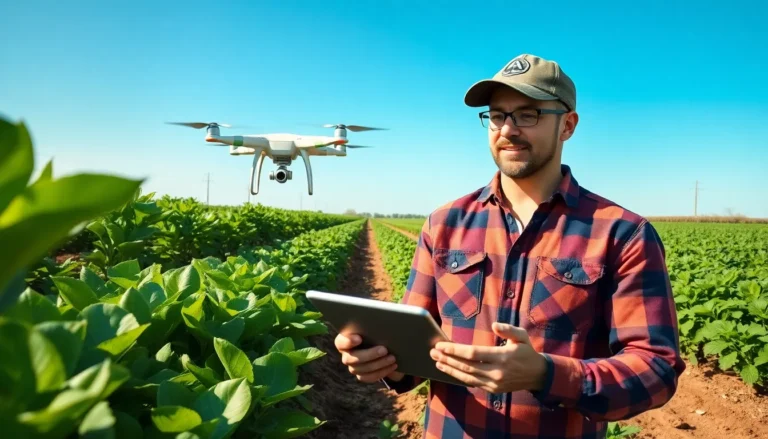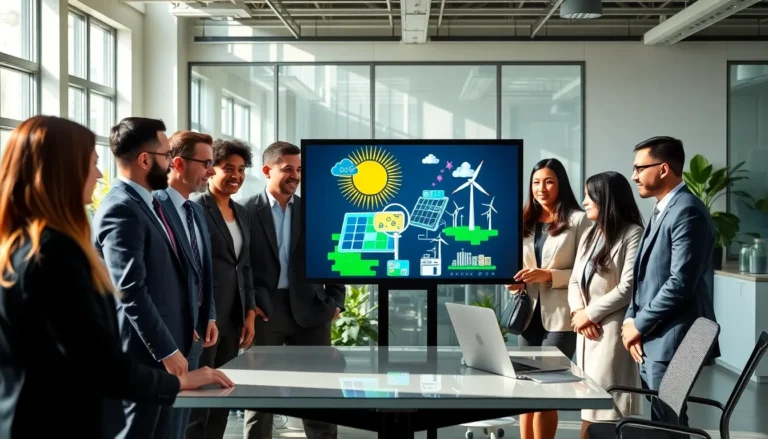Table of Contents
ToggleIn an age where environmental concerns have taken center stage, new sustainable technology emerges like a superhero, cape flapping in the wind, eager to save the day, or at least the planet. But what exactly is sustainable technology? This isn’t just another tech fad: it’s a movement that defines how we innovate, conserve, and thrive. Jump into the world of sustainability where tech meets eco-friendliness, and discover why it’s about more than just feeling good: it’s essential for survival. From solar panels that double as roofing tiles to innovations that make recycling as easy as pie, let’s explore why these advancements are the game changers we desperately need.
Understanding Sustainable Technology

Sustainable technology refers to innovations that significantly lessen the negative impact on the environment, promoting ecological balance while fulfilling human needs. It nods to concepts like renewable energy, waste reduction, and resource efficiency. This type of technology considers not just economic factors, but also social responsibilities and environmental stewardship. It aims to create systems where resources are not just used and discarded, but valued and reused.
Simply put, it’s about designing processes and products that are kinder to our planet, ensuring generations to come can also enjoy its bounty. Sustainable technology isn’t just a buzzword: it’s a call to action.
Importance Of Sustainability In Technology
Why should we prioritize sustainability in the tech world? For starters, the environment can’t take much more of our careless ways. Climate change is knocking on our door, and it brought some friends: drought, pollution, and resource depletion. Sustainable technology represents our opportunity to answer that door responsibly, showing we care about our planet as much as our gadgets.
From reducing carbon footprints to conserving water, sustainable approaches allow for technological advancements that do not compromise the earth’s health. Also, investing in sustainable technology can lead to significant economic benefits. It’s not just about saving the world: it’s about optimizing resources, which can enhance business profitability and efficiency.
Plus, governments and consumers are increasingly holding companies accountable for their environmental impact. This makes sustainability a necessity in a competitive market. Companies that embrace sustainable technology not only fulfill their moral obligations but often gain an edge in attracting eco-conscious consumers.
Recent Innovations In Sustainable Technology
Innovation is at the heart of sustainable technology. Here are some trailblazing examples making waves in various sectors:
Examples Of Sustainable Technologies
- Solar Roof Tiles – These beauties don’t just save space: they save energy. Combining solar technology with roofing materials, they provide a sleek aesthetic alongside energy independence.
- Biodegradable Plastics – Scientists are now developing plastics that break down naturally, reducing waste in landfills.
- Vertical Farming – Imagine growing food in high-rise buildings, utilizing less land and water. This innovative approach not only produces food but also reduces transportation emissions.
- Energy-efficient Appliances – Appliances now come equipped with smart technology that optimizes electricity usage. We’re talking about washing machines that adjust cycles based on load size.
- Electric Vehicles (EVs) – With advancements in battery technology, EVs are now more efficient and accessible, reducing dependency on fossil fuels.
Challenges In Implementing Sustainable Technology
Even though the promising prospects, implementing sustainable technology isn’t without its hurdles. Key challenges include:
- High Initial Costs: Many sustainable technologies require substantial upfront investments. Companies often hesitate, fearing immediate financial strain.
- Limited Awareness: Not everyone understands the benefits of sustainable technology or how to carry out it effectively.
- Regulatory Challenges: Existing regulations can be slow to adapt, often creating roadblocks for innovative solutions.
- Technological Barriers: Some industries may lack the technological infrastructure to support new sustainable solutions.
Overcoming these challenges will require collaboration across sectors and a commitment to education, a journey that, while arduous, is absolutely necessary.
Future Trends In Sustainable Technology
Looking ahead, several trends are poised to shape the future of sustainable technology.
- Circular Economy Practices – More companies are weaving circular economy principles into their operations, envisioning a system where waste is minimized, and materials are constantly reused.
- Advancements in Renewable Energy – Solar and wind technologies are expected to continue their rapid evolution, driving costs down and efficiency up.
- Smart Cities – Technology will increasingly integrate with urban planning, promoting energy-efficient infrastructure and transportation systems.
- Green Tech Startups – A surge in startups dedicated to sustainability is revolutionizing industries, pushing large corporations to follow suit.







